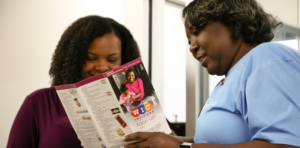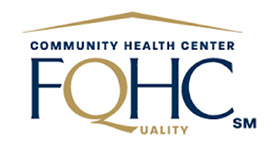AHL in the News, homepage, News, Access Health Louisiana Primary Care at Pythian, Belle Chasse C.H.C, Kenner C.H.C., South Broad C.H.C, St. Bernard C.H.C., St. Charles – Norco C.H.C, St. Charles Community Health Center – Luling, St. Tammany – Slidell C.H.C, Tangipahoa C.H.C, Washington C.H.C, Woodworth C.H.C.
BREASTFEEDING AWARENESS MONTH
August is National Breastfeeding Awareness month where we highlight the importance and benefits of breastfeeding and help parents access the resources they need to help increase breastfeeding initiation. The World Health Organization (WHO) recommends that children are exclusively breastfed for the first 6 months of their lives, but in the U.S. only 1 in 4 infants are exclusively breastfed during this period. Breast milk changes and develops to meet the specific needs of your baby whether that be nutritional content or sharing antibodies to help protect them from certain illnesses and diseases. Helping parents breastfeed their babies can help set them up for a healthy future.
 Though many may view breastfeeding as a lifestyle decision, breastfeeding your baby is also investing in the future health of your child. Breastfeeding reduces your baby’s risk of many health problems such as asthma, obesity, type 1 diabetes, severe lower respiratory disease, sudden infant death syndrome or SIDS, and gastrointestinal infections. Breastfeeding can also be beneficial to the breastfeeding parent’s health with lower risk of high blood pressure, type 2 diabetes, ovarian cancer, and breast cancer. For more great reasons to breastfeed your baby, visit the Louisiana Department of Health’s (LDH) page found here.
Though many may view breastfeeding as a lifestyle decision, breastfeeding your baby is also investing in the future health of your child. Breastfeeding reduces your baby’s risk of many health problems such as asthma, obesity, type 1 diabetes, severe lower respiratory disease, sudden infant death syndrome or SIDS, and gastrointestinal infections. Breastfeeding can also be beneficial to the breastfeeding parent’s health with lower risk of high blood pressure, type 2 diabetes, ovarian cancer, and breast cancer. For more great reasons to breastfeed your baby, visit the Louisiana Department of Health’s (LDH) page found here.
Breastfeeding can be very difficult, and 60% of mothers do not breastfeed for as long as they intend to. Charmaine Williams, one of Access Health Louisiana’s WIC supervisors, describes some of the barriers to continuing breastfeeding as, “mom’s having to go back to work and not able to pump, partners not supportive of breastfeeding and family not supportive of breastfeeding as the norm. Grandparents encouraging moms to formula feed their infants’ stating breastfeeding isn’t giving the baby all they need and they will be hungry. Grandparents are telling moms there’s no need to breastfeeding when so many different types of formula are available.” There are many additional factors that can impact the continuation of breastfeeding such as:
- issues with lactation and latching,
- concerns about infant nutrition and weight,
- Mother’s concern about taking medications while breastfeeding,
- unsupportive work policies and lack of parental leave,
- cultural norms and lack of family support,
- and unsupportive hospital practices and policies.
For more information on disparities and barriers in breastfeeding, visit the CDC’s breastfeeding statistics page found here.

Interventions for increasing breastfeeding are best when they start early. Comprehensive hospital practices and policies that support breastfeeding have been shown to reduce medically unnecessary formula supplementation, reduce disparities in breastfeeding, and help give infants the best start in life. If you are looking to try and increase breastfeeding for your child, the Louisiana WIC Breastfeeding Program can offer resources to help you breastfeed your children. This program can help connect you to resources such as prenatal and perinatal breastfeeding support, breastfeeding peer counselor programs, and breast pump support. Charmaine added, “we offer breast pumps: manual, electric and hospital grade, breastfeeding bags, breastfeeding educational material, breastfeeding incentives, breastfeeding meal plans, access to breastfeeding coordinator whom offers one on one breastfeeding support, breastfeeding peer counselor program which offers one on one support after hours, breastfeeding referral resources: outside consultants; such as lactation consultants (private organizations), breastfeeding lactation specialists, and the Pacify app; which is a free membership that links breastfeeding participants with breastfeeding experts 24/7.” Reach out to your local WIC services provider or contact one of Access Health Louisiana’s WIC services providers to discuss how the Louisiana WIC breastfeeding program may be able to support you. For more information about Access Health Louisiana’s WIC program, please call one of the numbers below or visit our WIC services page found here.
Call the WIC location nearest you for more information.
Slidell W.I.C. (985) 847-0720 Kenner W.I.C. (504) 496-0540
St. Bernard W.I.C. (504) 281-2891 Luling W.I.C. (985) 785-5841

